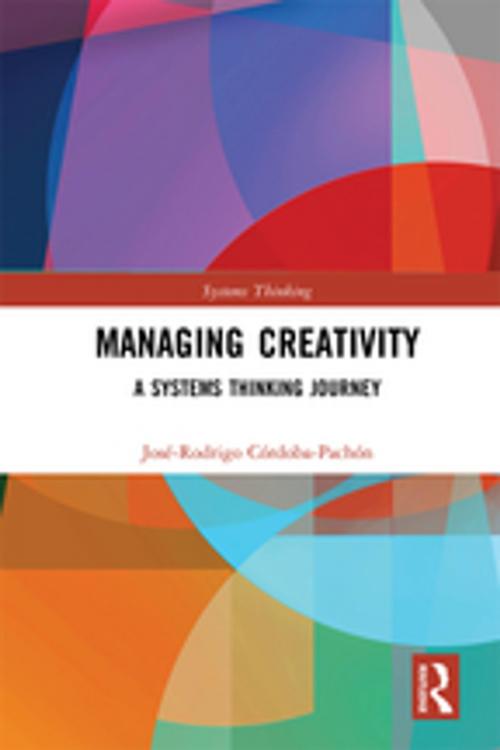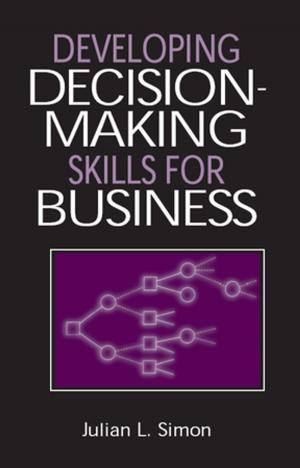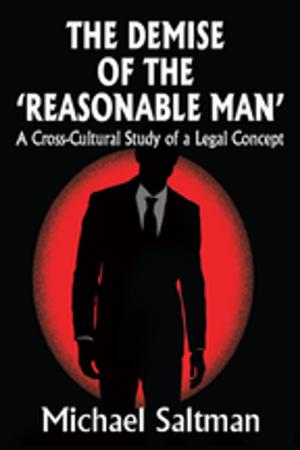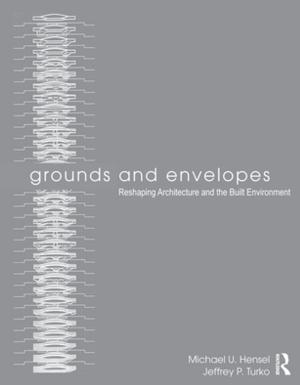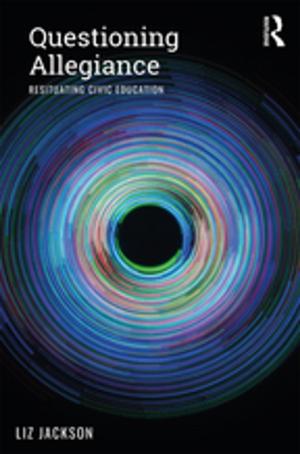Managing Creativity
A Systems Thinking Journey
Business & Finance, Management & Leadership, Motivational, Management| Author: | José-Rodrigo Córdoba-Pachón | ISBN: | 9781351012737 |
| Publisher: | Taylor and Francis | Publication: | December 7, 2018 |
| Imprint: | Routledge | Language: | English |
| Author: | José-Rodrigo Córdoba-Pachón |
| ISBN: | 9781351012737 |
| Publisher: | Taylor and Francis |
| Publication: | December 7, 2018 |
| Imprint: | Routledge |
| Language: | English |
For over a century, creativity has unfolded as a valuable field of knowledge. Emerging from disciplines like psychology, management and education, the field of creativity is making strides in others including the arts and engineering. Research and education in this field helped it establish an identity as evidenced by a growing number of courses and specialised journals. However, this progress has come with a price. In a domain like management, institutionalisation of creativity in learning, research and practice has left creativity subordinated to concerns with standardisation, employability and economic growth. Values like personal fulfilment, uncertainty, improvement and connectedness which could characterise systemic views on creativity need to be rescued to promote more and inclusive dialogue between creativity stakeholders.
The author aims to recover the importance of creativity as a systemic phenomenon and explores how applied systems thinking, or AST, can further support creativity. This demonstrates how creative efforts could be directed to improve quality of life for individuals as well as their environments. The book uses the systems idea as an enquiring device to bring together different actors to promote refl ection and action about creative possibilities. The chapters offer conceptualisations, applications and refl ections of systems ideas to help readers make sense of the field of creativity in academia and elsewhere.
Complemented by the author’s own personal, conceptual and practical journey, the insights of the book will act as a vital toolkit for management researchers, career-driven students, practitioners and all creators to define and pursue creative ideas and thrive through their journeys to benefit themselves, other people and organisations.
For over a century, creativity has unfolded as a valuable field of knowledge. Emerging from disciplines like psychology, management and education, the field of creativity is making strides in others including the arts and engineering. Research and education in this field helped it establish an identity as evidenced by a growing number of courses and specialised journals. However, this progress has come with a price. In a domain like management, institutionalisation of creativity in learning, research and practice has left creativity subordinated to concerns with standardisation, employability and economic growth. Values like personal fulfilment, uncertainty, improvement and connectedness which could characterise systemic views on creativity need to be rescued to promote more and inclusive dialogue between creativity stakeholders.
The author aims to recover the importance of creativity as a systemic phenomenon and explores how applied systems thinking, or AST, can further support creativity. This demonstrates how creative efforts could be directed to improve quality of life for individuals as well as their environments. The book uses the systems idea as an enquiring device to bring together different actors to promote refl ection and action about creative possibilities. The chapters offer conceptualisations, applications and refl ections of systems ideas to help readers make sense of the field of creativity in academia and elsewhere.
Complemented by the author’s own personal, conceptual and practical journey, the insights of the book will act as a vital toolkit for management researchers, career-driven students, practitioners and all creators to define and pursue creative ideas and thrive through their journeys to benefit themselves, other people and organisations.
